9 Best Herbal Creams For Psoriasis
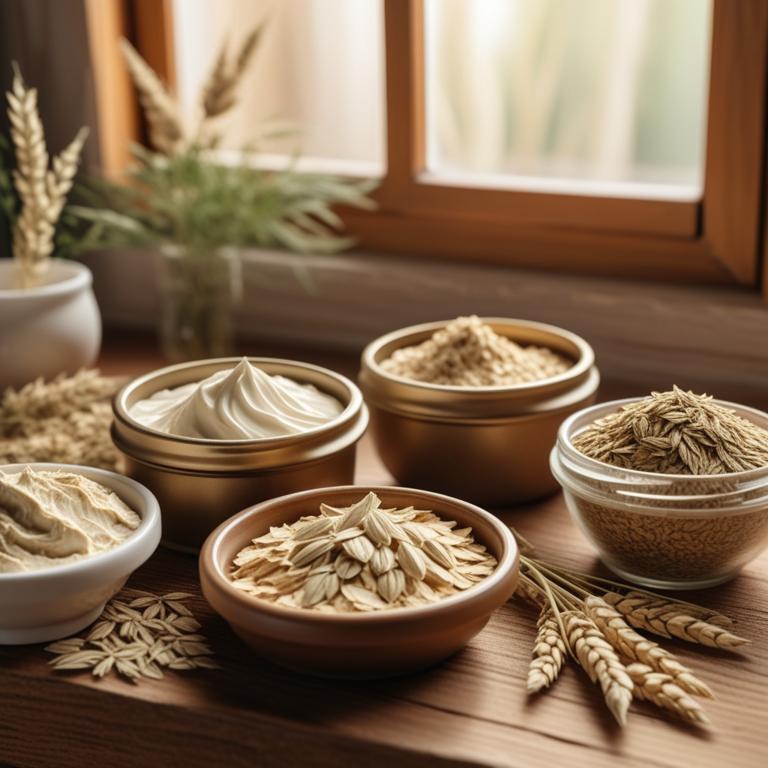
Herbal creams for Psoriasis are topical treatments made from natural herbs and plants that have anti-inflammatory and antiseptic properties, used to soothe and calm the skin affected by psoriasis.
The benefits of using herbal creams for psoriasis include reduced inflammation, improved skin texture, and a decrease in the appearance of symptoms such as redness and scaling.
Examples of herbal creams used to treat psoriasis include creams infused with Aloe Vera, which helps to calm and moisturize the skin, Turmeric, which has anti-inflammatory properties, Tea Tree Oil, which has antiseptic properties to reduce the risk of infection, Chamomile, which has anti-inflammatory and soothing properties, and Capsicum, which helps to reduce pain and inflammation.
Additionally, other herbal creams such as Calendula, Ginkgo Biloba, and Rosehip oil are also used to treat psoriasis due to their ability to promote skin regeneration, reduce inflammation, and improve skin elasticity.
According to "Recent patents on nanotechnology", creams for psoriasis can be improved in efficacy and safety using newer biocompatible and biodegradable materials such as phospholipids, and forefront drug delivery methods like liposomes, microemulsions, and niosomes.
Below there's a list of the 9 best herbal creams for psoriasis.
- 1. Aloe barbadensis creams
- 2. Urtica dioica creams
- 3. Saponaria officinalis creams
- 4. Melissa officinalis creams
- 5. Chamomilla recutita creams
- 6. Calendula officinalis creams
- 7. Avena sativa creams
- 8. Corylus avellana creams
- 9. Echinacea purpurea creams
Also you may be interested in...
TODAY'S FREE BOUNDLE
Herb Drying Checklist + Herbal Tea Shopping List + Medicinal Herbs Flashcards
Enter you best email address below to receive this bundle (3 product valued $19.95) for FREE + exclusive access to The Aphotecary Letter.
$19.95 -> $0.00
1. Aloe barbadensis creams
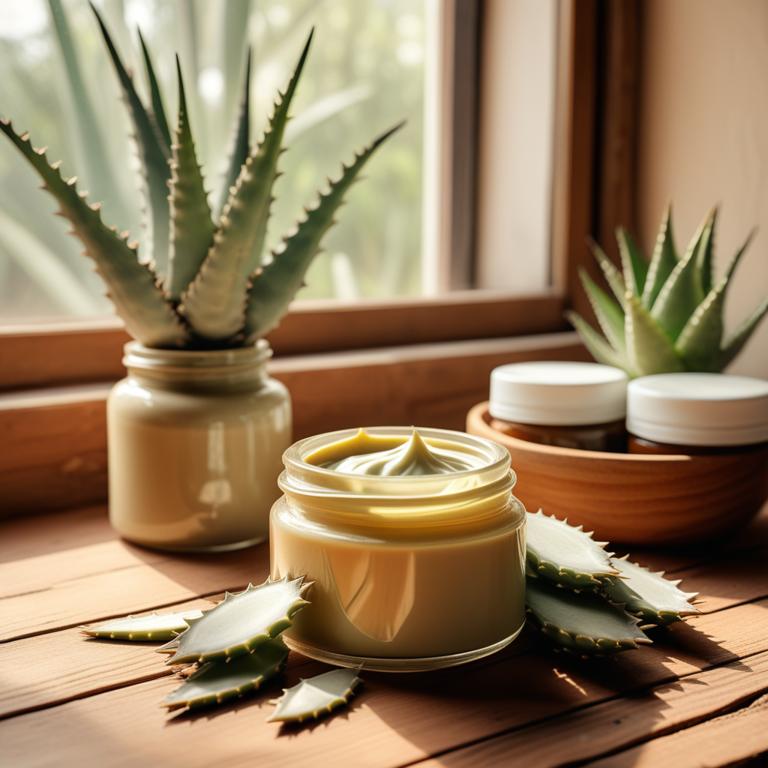
Aloe barbadensis creams have been widely used to treat psoriasis, a chronic skin condition characterized by red, itchy, and scaly patches.
The anti-inflammatory and soothing properties of Aloe barbadensis creams help to reduce the inflammation and irritation associated with psoriasis, promoting a faster healing process.
Bioactive constituents such as aloin, aloe-emodin, and acemannan present in Aloe barbadensis creams possess antioxidant and immunomodulatory properties that help to regulate the immune response and prevent further damage to the skin.
By using Aloe barbadensis creams, individuals with psoriasis can experience reduced symptoms, improved skin texture, and enhanced overall well-being.
Related Study
According to "Tropical medicine & international health : TM & IH", Aloe barbadensis creams containing 0.5% Aloe vera extract were found to be significantly effective in curing 83.3% of patients with psoriasis vulgaris within 4 weeks of treatment.
2. Urtica dioica creams
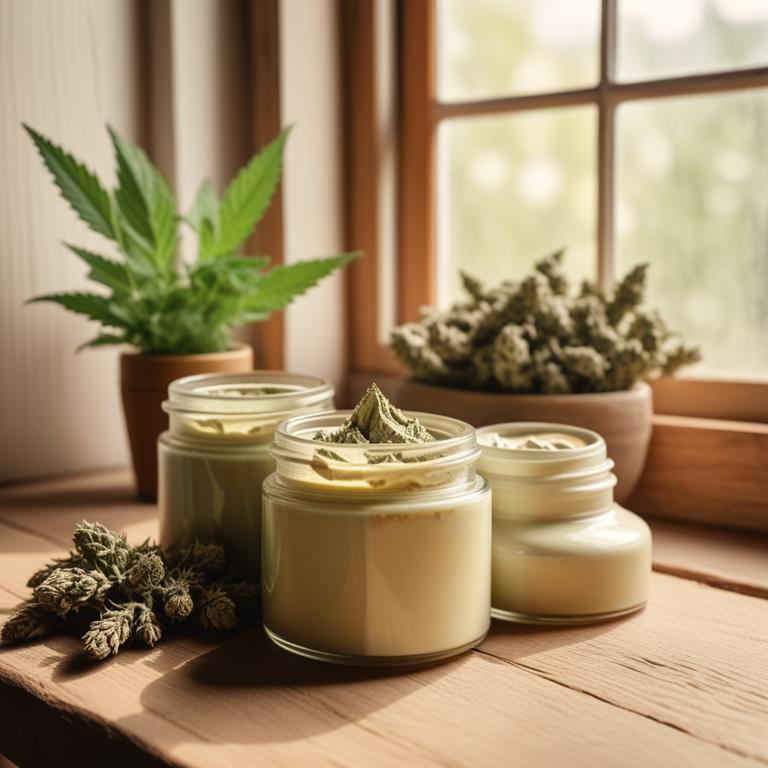
Urtica dioica creams, derived from the leaves of the stinging nettle plant, have been used to treat psoriasis due to their anti-inflammatory, antioxidant, and immunomodulatory properties.
The bioactive constituents, such as flavonoids, phenolic acids, and polysaccharides, help to reduce inflammation and promote skin regeneration, making it easier to manage psoriasis symptoms.
By soothing the skin and reducing redness, Urtica dioica creams can help to alleviate the discomfort and appearance of psoriasis plaques, thereby improving the overall quality of life for affected individuals.
The benefits of using Urtica dioica creams to treat psoriasis include reduced inflammation, improved skin health, and a decrease in the frequency and severity of flare-ups.
Related Study
According to "Infectious disorders drug targets", Urtica dioica creams for psoriasis may be considered a natural herbal remedy for managing skin disorders, including psoriasis, with potential benefits of lower cost and fewer side effects compared to modern medicines.
3. Saponaria officinalis creams
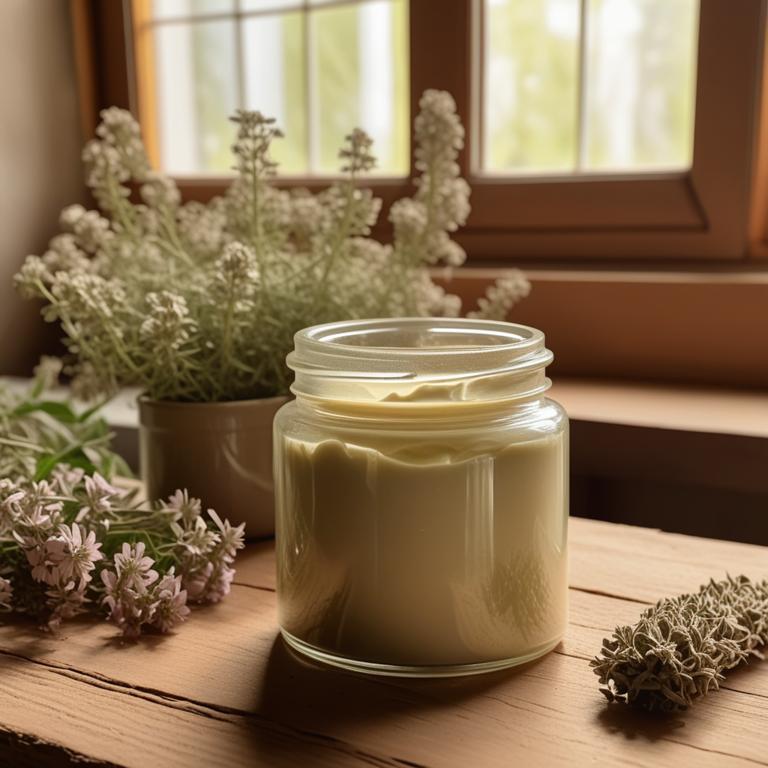
Saponaria officinalis creams have been traditionally used to treat psoriasis, an inflammatory skin condition characterized by red, scaly patches.
The anti-inflammatory and soothing properties of this herbal preparation help to reduce redness and irritation, while its antiseptic properties prevent bacterial infections that can exacerbate the condition.
The bioactive constituents of Saponaria officinalis creams, including saponins and flavonoids, have been shown to have anti-inflammatory and antioxidant effects, which contribute to their therapeutic benefits in treating psoriasis.
By using Saponaria officinalis creams, individuals with psoriasis can experience relief from symptoms such as itching, scaling, and redness, and can enjoy improved skin health and reduced disease severity.
Related Study
According to the "Journal of ethnopharmacology", Saponaria officinalis creams for psoriasis are potentially beneficial as they have shown anti-inflammatory activity, reducing superoxide anion generation by 45% and increasing cell viability on exposure to hydrogen peroxide by 28%, suggesting their therapeutic potential in treating psoriasis.
4. Melissa officinalis creams
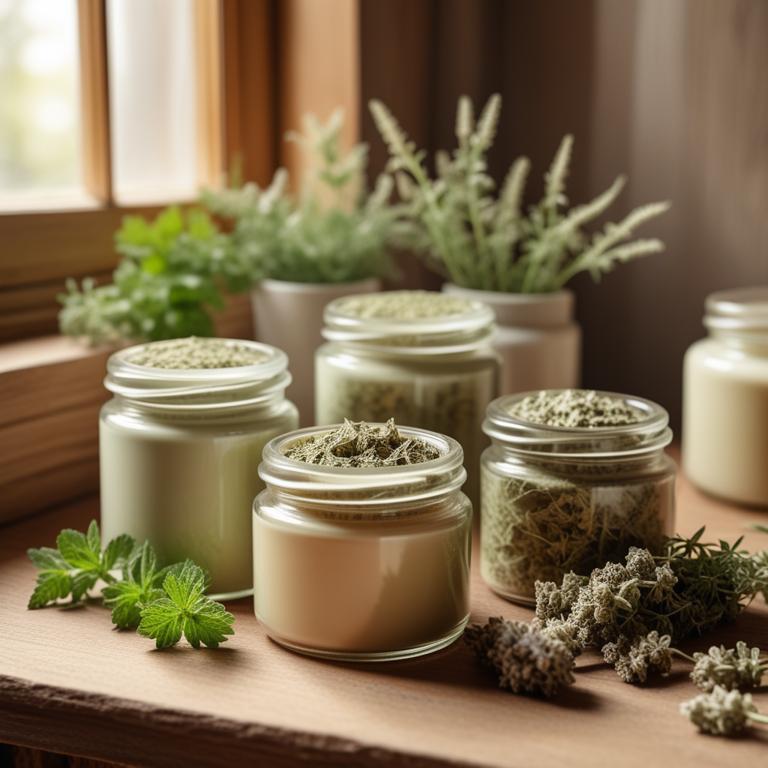
Melissa officinalis creams have been traditionally used to treat psoriasis, a chronic inflammatory skin condition.
The anti-inflammatory and antiseptic properties of Melissa officinalis creams help to reduce redness and itching associated with psoriasis, promoting a healthy skin environment.
The bioactive constituents of Melissa officinalis, including linalool, linalyl acetate, and melissic acid, contribute to its therapeutic effects, exhibiting potent antioxidant and anti-inflammatory activities that soothe and calm the skin.
By using Melissa officinalis creams, individuals with psoriasis can experience reduced symptoms, improved skin hydration, and a potential decrease in the frequency and severity of psoriasis flare-ups.
5. Chamomilla recutita creams
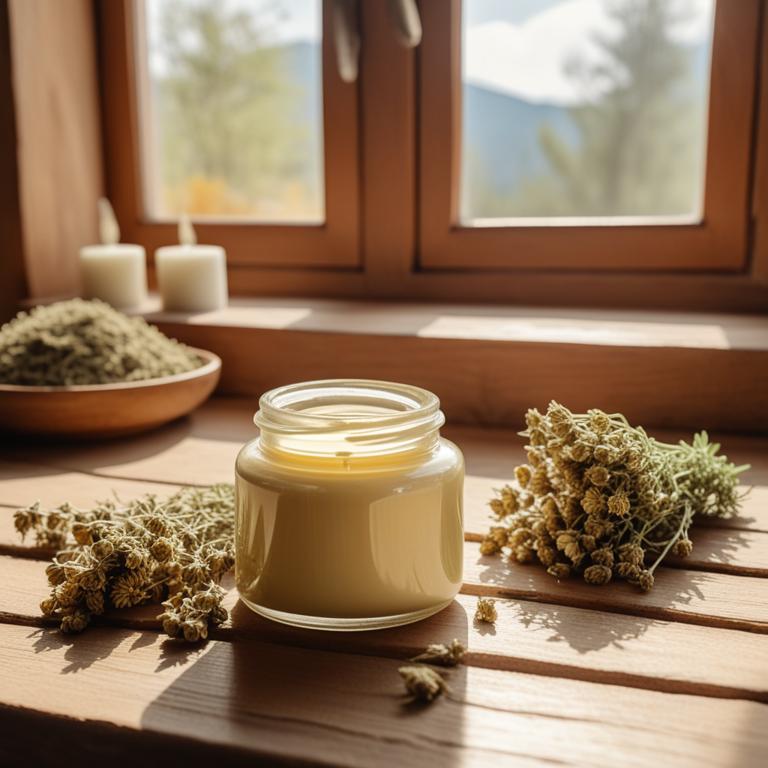
Chamomilla recutita creams have been traditionally used to treat psoriasis due to their anti-inflammatory, antioxidant, and soothing properties.
These creams help to reduce the redness and irritation associated with psoriasis, promoting a calming effect on the skin.
The bioactive constituents, such as flavonoids and terpenoids, present in Chamomilla recutita creams have anti-inflammatory and antipruritic effects, which help to alleviate the symptoms of psoriasis.
The use of Chamomilla recutita creams as a natural remedy for psoriasis offers benefits, including reduced scarring, improved skin texture, and a decrease in the risk of psoriasis-related complications.
6. Calendula officinalis creams
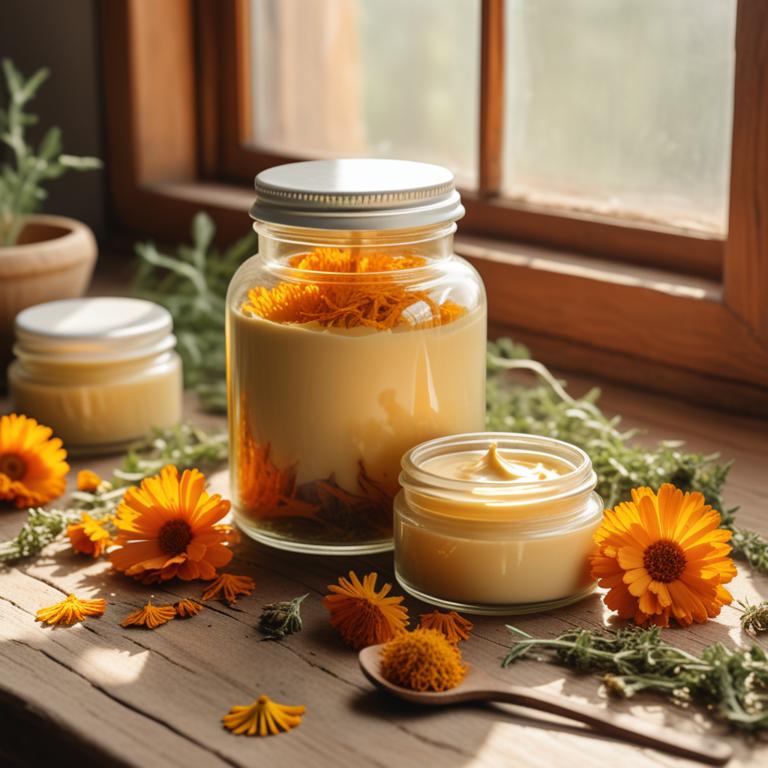
Calendula officinalis creams have been widely used to treat psoriasis due to their anti-inflammatory and antiseptic properties, which help to soothe and calm irritated skin.
The bioactive constituents of Calendula officinalis, including triterpenoids and flavonoids, exhibit potent antioxidant and immunomodulatory effects that aid in reducing inflammation and promoting wound healing.
These creams help to treat psoriasis by reducing redness, scaling, and inflammation, thereby improving skin health and promoting a more even skin tone.
The benefits of using Calendula officinalis creams to treat psoriasis include reduced symptoms, improved skin quality, and a lower risk of complications associated with the condition.
Related Study
According to the study, Calendula officinalis creams for psoriasis have the potential to greatly improve the quality of life of the patient.
7. Avena sativa creams
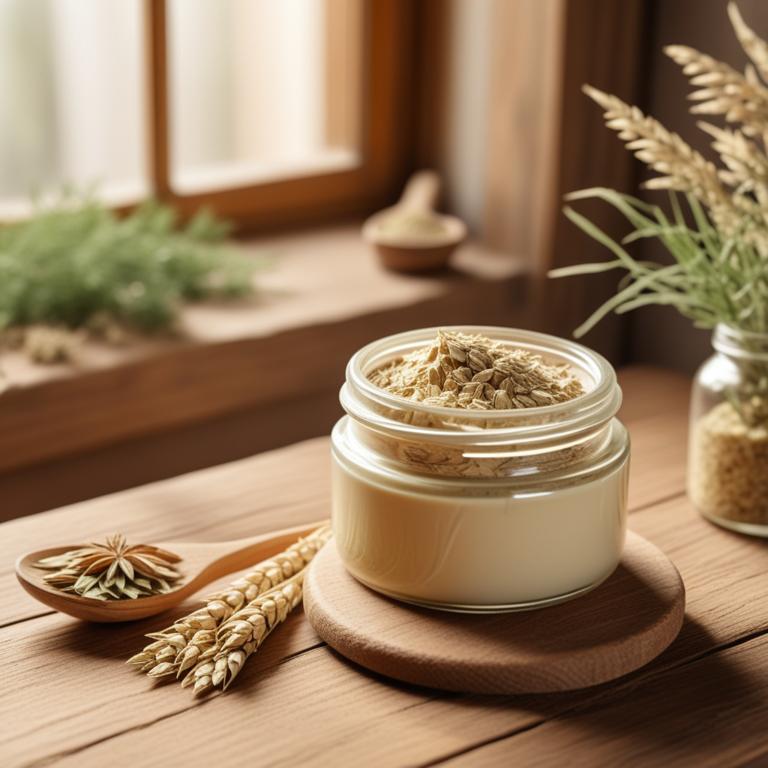
Avena sativa creams, derived from the oat plant, have been traditionally used to treat psoriasis due to their anti-inflammatory and soothing properties, which help to calm irritated skin and reduce redness.
The bioactive constituents present in Avena sativa creams, such as avenanthramides and phenolic compounds, have been found to possess potent anti-inflammatory and antioxidant activities, which aid in reducing psoriasis symptoms.
These creams help to treat psoriasis by reducing inflammation, promoting skin hydration, and improving skin elasticity, ultimately leading to smoother and healthier-looking skin.
The benefits of using Avena sativa creams to treat psoriasis include reduced itching and scaling, improved skin texture, and enhanced overall skin health.
8. Corylus avellana creams

Corylus avellana creams, a natural herbal preparation, have been traditionally used to treat psoriasis by reducing inflammation and promoting skin healing.
The anti-inflammatory and antioxidant properties of this preparation, particularly due to the presence of flavonoids and phenolic acids, help to soothe and calm the skin, thereby alleviating the symptoms of psoriasis.
The bioactive constituents, including phenolic acids and flavonoids, in Corylus avellana creams help to reduce oxidative stress and inflammation, thereby promoting the healing of skin lesions and improving skin health.
Regular use of Corylus avellana creams has been shown to provide benefits in treating psoriasis, including reduced redness, itching, and scaling, as well as improved skin elasticity and texture.
9. Echinacea purpurea creams
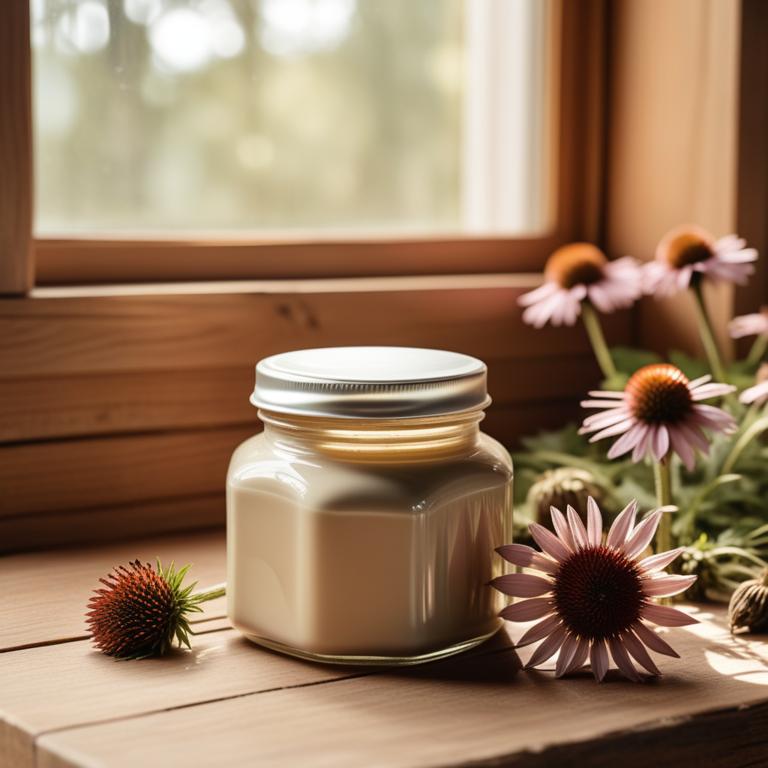
Echinacea purpurea creams have been traditionally used to treat psoriasis, a chronic skin condition characterized by red, itchy, and scaly patches.
The anti-inflammatory and immunomodulatory properties of this herbal preparation help to reduce inflammation and modulate the immune response, alleviating symptoms of psoriasis.
Bioactive constituents such as alkylamides, caffeic acid, and polyacetylenes in Echinacea purpurea creams have been found to possess anti-inflammatory and antioxidant properties, which contribute to their therapeutic effects.
The benefits of using Echinacea purpurea creams for psoriasis include reduced inflammation, improved skin texture, and enhanced overall well-being, making it a popular natural remedy for managing this chronic condition.